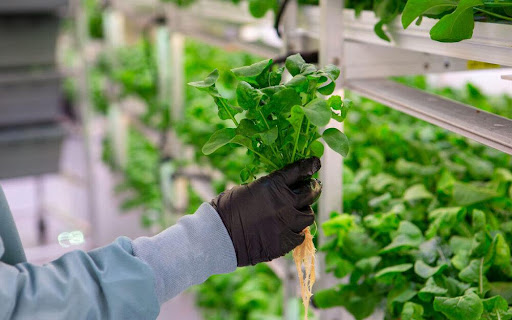Hydroponics farming has its origins in ancient Babylon, present-day Iraq. However, Europe has been at the forefront of using hydroponics farming techniques over the years. Europe has continually pushed using advanced techniques in hydroponics smart greenhouses and using grow tent kits for beginners.
Countries like Netherlands, Spain, and France have large greenhouse cultivation plants. Hydroponics farming has a huge market in Europe. Greenhouse farming makes sure that planting and harvesting can occur all year round.
With the world suffering from drought most frequently over the recent forty years, hydroponics systems are spreading to Africa. Researchers claim that drought has been a problem in the last forty years more than any other natural disaster globally.
The drastic change can be accredited to global climate change such as global warming. These changes are largely threatening food security for most people worldwide. Developing countries such as most of the African countries suffer the most.
The increased occurrence of drought in these countries causes hunger, environmental damage, and/or social and economic instability. It is concerning since more than 40% of the African population depends on agriculture as a source of income.
Particularly, East and Central Africa have been gravely affected by water shortages. That coupled with rapid population growth food insecurity becomes a major problem for the population. The traditional farming methods are not meriting as they did earlier on. Therefore, there is a huge need for hydroponics farming.
An East African chemist named Chege introduced hydroponics farming to East Africa, primarily in Kenya. He is the founder of Hydroponics Africa LLC. He is actively advocating for farmers to embrace this innovative and cost-effective method of farming.
How Hydroponics Helps Improve Food Security
With the increased occurrence of drought, it means there is less water to use for irrigation. Hydroponics farming is proposed since it uses about 90% less water than any traditional method of farming. The structures in hydroponics systems recycle the water already circulated.
Also, hydroponics systems take up less space than soil-based farming. In areas where farming land is quickly disappearing, hydroponics farming becomes the most viable option for food production. Hydroponics farming would work for both small and medium-sized family homes.
Additionally, the farmers can control conditions such as the PH and nutrient levels to feed the crops. Passing controlled nutrient-rich aqua through the plants’ roots increases and promotes healthy plant growth.With vertical stacking hydroponics type of farming, there is an increase in production rates and crop growth density. The great thing is how easy it is to build vertical structures for farming. Any gardener can implement this method of farming for either residential or commercial purposes.
Hydroponics Africa LLC
Hydroponics Africa LLC was founded in 2012 by a chemist named Chege. He attempted to introduce to the Kenyan farmers’ hydroponics farming. It was an affordable alternative to buying sometimes highly-priced livestock feed.
Since then the hydroponics farming company has gone on and installed and produced crop and fodder growing hydroponics systems in Rwanda, Tanzania, and Uganda. Over the years the governments are now gradually buying into the idea to improve their country’s food security.
Hydroponics Africa LLC has partnered with United States Agency for International Development (USAID), the World Food Program(WFP), and the Food and Agriculture of the United Nations(FAO) to promote and fund the idea of hydroponics systems in these drought-affected areas.
The company has also gathered support from Kenya’s Water Resources Management Authority(WARMA) and the Kenyan ministry of agriculture. Recently, the Kenya Climate Innovative Centre(KCIC) also wants to join the movement to assist small farms and promote water management technologies. All these organizations are actively working to end hunger in Kenya and East Africa.
Also, Hydroponics Africa LLC provides customized systems to small and medium-sized farmers. By customized, it means the company uses locally available materials for the hydroponics structures. Using locally available materials and labor makes the systems and structures cheaper to erect.
This approach helps both small-scale and medium-scale farmers adopt this better method of agriculture. There is no need for special skills or equipment needed. It gives the farmers an opportunity for growth and expansion to more elaborate hydroponics farming over time.
The company has also partnered with various banks to come up with loans for farmers to invest in their farms. On average erecting a hydroponics system costs $1000 to $40000. Depending on the farmer’s choice the banks offer low-interest rates and friendly monthly payment plans to promote hydroponics farming.
There is a promise to expand the hydroponics farming practices all across Africa. Companies such as Hydroponics Africa LLC have set the ball rolling in the right direction in fighting drought and hunger in Africa.
Revolutionizing how small-scale farmers approach crop production will greatly impact the drought-stricken areas in Africa. Food security is very important in any community and Africa is certainly taking steps in the proper direction.
